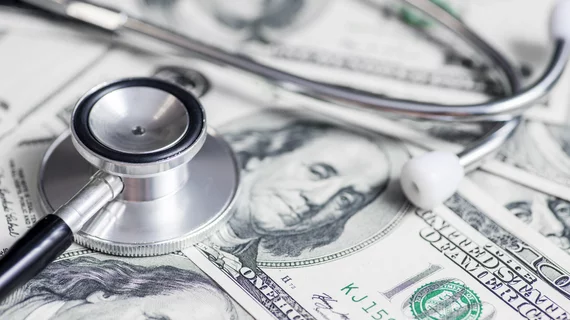Cardiologist salary update: Compensation jumps to $525K per year, No. 3 among all specialties
Cardiologists in the United States earn an average annual income of $525,000, according to new survey data from Medscape. Cardiology ranks No. 3 among all healthcare specialties, trailing just orthopedics ($558,000) and plastic surgery ($536,000).
The 2024 Medscape Physician Compensation Report includes feedback from 7,000 U.S. physicians representing dozens of specialties. Approximately 280 participants were cardiologists. Fifty-eight percent of respondents were women. Responses were gathered from October 2023 to January 2024.
Overall, compensation appears to be on the rise for U.S. physicians. The average annual income for respondents was $363,000, up from $352,000 the previous year. Among primary care providers (PCPs), average compensation increased from $265,000 to $277,000. Among specialists, meanwhile, it jumped from $382,000 to $394,000.
Cardiology saw its average annual income increase by approximately 3% compared to the previous year, but some specialties experienced a different trend altogether. Plastic surgeons, for example, saw their average compensation decrease by a whopping 13%, though they still came it at No. 2 on the final list. Physical medicine/rehabilitation, neurology, dermatology, emergency medicine, family medicine, public health/preventive medicine, pediatrics, radiology and urology are some of the other specialties that saw compensation increase from one year to the next.
Cardiologists also reported earning an average of $75,000 in incentive-related bonuses. This was the third most of any specialty, behind dermatologists ($142,000) and orthopedists ($102,000).
The Medscape report also confirmed that a majority (61%) of U.S. physicians think they are underpaid. In addition, just 48% of cardiologists said they think they are fairly paid. One page of the report included a series of anonymous quotes from respondents about this very subject.
“I love my work, but I cannot cover my own bills, and I lose massive amounts of time with my family,” one physician said.
More key takeaways:
- Average annual income is still much higher among men ($400,000) than women ($309,000). This is true among PCPs ($295,000 vs. $253,000) and specialists ($435,000 vs. $333,000).
- When asked if compensation played a role in choosing a specialty to practice, 45% of physician said pay was “not a factor.” Another 38% described it as a minor factor, and 14% said it was a leading factor. Three percent said it the main factor that guided their decision.
- Average compensation increased more than twice as much among Black physicians as it did for any other racial or ethnic group.
Read the full report here.

